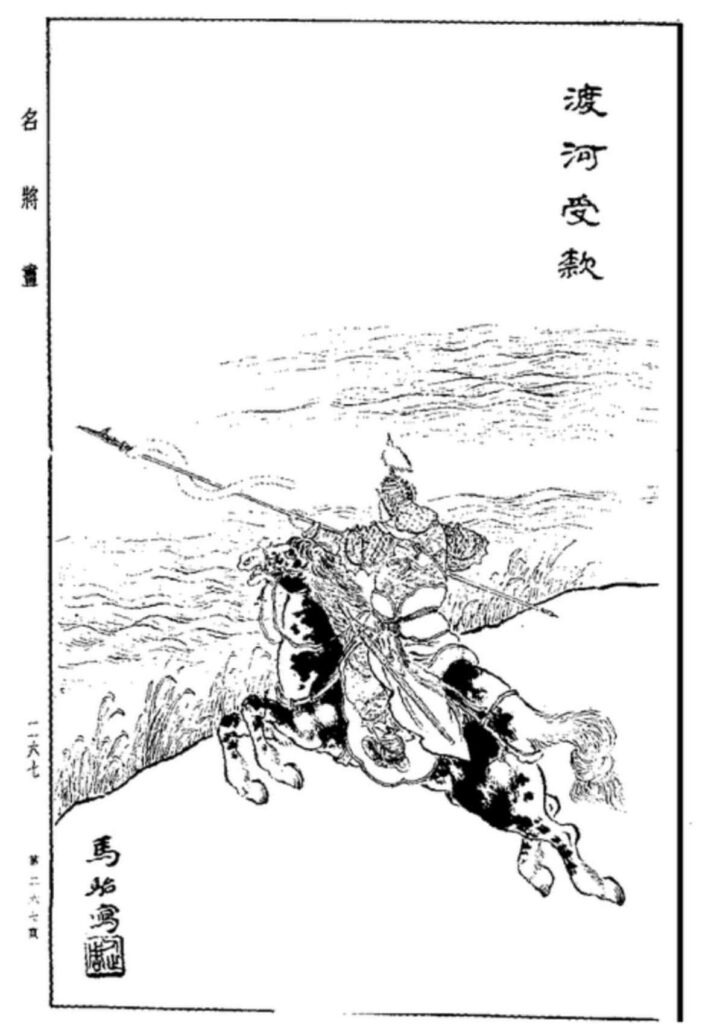Huo Qubing
TLDR: Huo Qubing (140–117 BCE) was a brilliant Han general known for his decisive victories against the Xiongnu, expanding the empire’s territory and influence.
Huo Qubing’s story never fails to captivate me. A military prodigy who rose from humble beginnings to become one of the most celebrated generals in Chinese history, Huo Qubing’s life reads like an epic tale of courage and brilliance. Born during the Western Han Dynasty, his meteoric rise through the ranks and his unparalleled success against the formidable Xiongnu nomads reshaped the geopolitical landscape of ancient China.
Early Life of Huo Qubing
Huo Qubing was born in 140 BCE in Linfen, Shanxi, during the Western Han Dynasty. His birth was the result of a love affair between Wei Shaoer, the daughter of a lowly maid from Princess Pingyang’s household, and Huo Zhongru, a low-ranking civil servant. Huo Zhongru, unwilling to marry Wei Shaoer due to her lower social status, abandoned her and married someone from his hometown instead. Despite this, Wei Shaoer chose to keep and raise the child with the help of her siblings.
Huo Qubing’s family connections would play a crucial role in shaping his future. His aunt, Wei Zifu, caught the attention of Emperor Wu while serving as a singer and dancer for Princess Pingyang. This led to Wei Zifu becoming a favored concubine and later the Empress, significantly elevating the status of the Wei family.
Despite his illegitimate status, Huo Qubing’s childhood was marked by growing prosperity and prestige due to his family’s rising fortunes. His uncle, the famous general Wei Qing, played a significant role in his upbringing, teaching him various martial arts, with a particular focus on horseback riding and archery.
Huo Qubing demonstrated an eagerness to learn from an early age. His education likely emphasized military skills, given his family’s background and the political climate of the time. The young Huo Qubing grew up in an environment that valued martial prowess, especially in light of the ongoing conflicts with the Xiongnu.
Huo Qubing’s exceptional talents caught the attention of Emperor Wu of Han, who recognized the young man’s potential. Despite his humble origins, Huo Qubing’s martial skills and keen intellect set him apart. Emperor Wu, impressed by Huo’s abilities, appointed him as a personal assistant responsible for the emperor’s safety. This position allowed Huo Qubing to gain valuable experience in the imperial court and develop a close relationship with the emperor.
Huo Qubing’s military career began in earnest in 123 BCE when Emperor Wu organized a campaign against the Xiongnu. At the age of 18, Huo Qubing was appointed as the Captain of Piaoyao (票姚校尉) under his uncle Wei Qing, who led the main force from Dingxiang. This assignment marked Huo Qubing’s first experience in real combat and set the stage for his future military achievements.
During this campaign, Huo Qubing demonstrated his exceptional military acumen. While his uncle’s troops struggled to make significant progress, Huo Qubing distinguished himself by leading a daring long-distance raid. With just 800 light cavalrymen, he penetrated deep into enemy territory, killing the Chanyu’s grandfather and over 2,000 enemy troops, as well as capturing numerous Xiongnu nobles. This remarkable feat caught Emperor Wu’s attention, leading to Huo Qubing’s promotion to the rank of Marquess of Champion (冠軍侯) with a march of 2,500 households.
Huo Qubing’s Major Military Campaigns
The 123 BCE Campaign
Huo Qubing’s first major campaign in 123 BCE marked the beginning of his legendary military career. At the young age of 18, he served as the Captain of Piaoyao under his uncle Wei Qing, who led the main force from Dingxiang against the invading Xiongnu. While Wei Qing’s forces struggled to make significant progress, Huo Qubing distinguished himself with a daring long-distance raid. Leading just 800 light cavalrymen, he penetrated deep into enemy territory, killing the Chanyu’s grandfather and over 2,000 enemy troops, as well as capturing numerous Xiongnu nobles. This remarkable feat earned him the title of Marquess of Champion and set the stage for his future military achievements.
Conquests in the Hexi Corridor (121 BCE)
In 121 BCE, Huo Qubing led two significant campaigns in the Hexi Corridor, demonstrating his tactical brilliance and expanding Han territory. In the spring, he led 10,000 cavalry through five Western Regions kingdoms within six days, advancing over 1,000 li over Mount Yanzhi. This swift operation resulted in the deaths of two Xiongnu princes and nearly 9,000 enemy troops, as well as the capture of several Xiongnu nobles and the Golden Man idol, a sacred Xiongnu artifact.
Later that summer, Huo Qubing launched another campaign from Longxi, leading over 10,000 cavalry. Despite lacking support from Gongsun Ao, who failed to keep up, Huo Qubing traveled over 2,000 li without backup, reaching as far as the Qilian Mountains. This campaign resulted in over 30,000 Xiongnu casualties and the capture of a dozen Xiongnu princes. These victories in the Hexi Corridor were crucial in securing this strategic region for the Han Empire, providing a gateway to the Western Regions and cutting off the Xiongnu from their allies.
The Battle of Mobei (119 BCE)
The Battle of Mobei in 119 BCE was the culmination of Huo Qubing’s military career and a defining moment in the Han-Xiongnu conflict. As part of a massive Han offensive, Huo Qubing led one of two columns, each consisting of 50,000 cavalry and over 100,000 infantry. Setting off from Dai Prefecture, Huo Qubing’s forces marched over 1,000 miles into the heart of Xiongnu territory in the Gobi Desert.
In a swift and decisive engagement, Huo Qubing’s army directly confronted the forces of the Xiongnu’s Worthy Prince of the East. Employing superior tactics and leveraging the elite nature of his cavalry, Huo Qubing quickly encircled and overran the enemy. The battle resulted in 70,443 Xiongnu casualties and the capture of three Xiongnu lords and 83 nobles. This campaign reached as far north as Lake Baikal, demonstrating the unprecedented reach of Han military power.
| Year (BCE) | Campaign | Key Achievements |
| 123 | First Xiongnu Campaign | Killed 2,000+ enemies, captured nobles |
| 121 (Spring) | Hexi Corridor – Mount Yanzhi | Defeated 5 kingdoms, killed 9,000 enemies |
| 121 (Summer) | Hexi Corridor – Qilian Mountains | Killed 30,000 enemies, captured 12 princes |
| 119 | Battle of Mobei | Killed 70,443 enemies, captured 3 lords and 83 nobles |
Huo Qubing’s Military Strategies and Tactics
Huo Qubing’s military genius was evident in his innovative battle formations. While specific details of his formations are not extensively documented in the search results, we can infer his tactical brilliance from his success in battles against numerically superior Xiongnu forces. One notable formation was likely adapted from his uncle Wei Qing’s use of the “Wu Gang Chariots” (武刚车). These heavy-armored war wagons were arranged in ring formations, creating mobile fortresses that provided protection for archers, crossbowmen, and infantry against cavalry charges. Huo Qubing likely refined this tactic, combining it with his elite cavalry to create a flexible and formidable fighting force.
Long-distance raids were a hallmark of Huo Qubing’s military strategy. In 123 BCE, at just 18 years old, he led 800 light cavalrymen on a daring raid deep into enemy territory, killing the Chanyu’s grandfather and over 2,000 enemy troops. This tactic of swift, deep strikes into Xiongnu lands became a signature of Huo Qubing’s campaigns. In 121 BCE, he led 10,000 cavalry through five Western Regions kingdoms within six days, covering over 1,000 li (approximately 500 kilometers) and striking with such speed that the enemy was caught completely off guard. These raids not only inflicted significant casualties but also had a profound psychological impact on the Xiongnu.
Huo Qubing employed various psychological warfare techniques to demoralize the enemy. One of his most effective methods was the capture and use of Xiongnu individuals, effectively creating what could be considered special forces by today’s standards. By incorporating Xiongnu fighters into his ranks, Huo Qubing likely gained valuable intelligence and sowed confusion among enemy forces. Additionally, his tactic of capturing “tongues” (spies) to gather intelligence before battles demonstrates his understanding of the psychological aspects of warfare. The seizure of the Xiongnu’s Golden Man idol, a sacred artifact used in rituals, during his 121 BCE campaign was another example of psychological warfare, striking at the heart of Xiongnu spiritual beliefs.
| Tactic | Description | Notable Example |
| Mobile Fortresses | Adapted “Wu Gang Chariots” for defense | Battle of Mobei (119 BCE) |
| Long-Distance Raids | Swift, deep strikes into enemy territory | 123 BCE raid killing 2,000+ enemies |
| Special Forces | Incorporation of Xiongnu fighters | 119 BCE campaign |
| Intelligence Gathering | Capture of enemy spies (“tongues”) | Pre-battle preparations |
Huo Qubing’s Relationship with Emperor Wu
Huo Qubing’s relationship with Emperor Wu of Han was characterized by mutual respect and admiration, which significantly influenced Huo’s rise to prominence. Recognizing Huo’s exceptional military talents and potential, Emperor Wu appointed him as a palace attendant, granting him access to the imperial court. This position not only elevated Huo’s status but also allowed him to develop a close rapport with the emperor.
As Huo Qubing proved himself in battle, his accomplishments did not go unnoticed. Following his successful campaigns against the Xiongnu, particularly the daring raid in 123 BCE where he killed over 2,000 enemy troops, Emperor Wu rewarded him with the title of Marquess of Guanjun (Champion). This title was a testament to Huo’s bravery and effectiveness as a military leader. The emperor continued to show his favor by bestowing further honors upon Huo, including significant land grants and resources that reflected his high regard for the young general.
Huo Qubing’s military successes led to a series of rapid promotions within the Han military hierarchy. In 121 BCE, after demonstrating his strategic prowess during campaigns in the Hexi Corridor, he was appointed as Cavalry General (Biaoji Jiangjun). This role placed him in command of elite cavalry units, allowing him to leverage his skills in horsemanship and archery effectively.
In 119 BCE, during the major campaign against the Xiongnu, Huo Qubing commanded a significant division under Wei Qing. His leadership during this campaign culminated in decisive victories that further solidified his reputation as one of the Han Dynasty’s foremost generals. After returning from this successful expedition, Emperor Wu honored Huo Qubing with the prestigious title of Minister of War (Da Sima), placing him among the highest ranks of military leadership in the empire.
Huo Qubing’s Personal Characteristics
Huo Qubing was renowned for his exceptional military skills and dynamic leadership style, which set him apart as one of the most formidable generals of the Han Dynasty. His expertise in horsemanship, archery, and swordsmanship was complemented by his ability to inspire and lead his troops effectively. Huo Qubing often led from the front, demonstrating bravery and commitment to his men, which earned him their respect and loyalty. His hands-on approach to leadership not only motivated his soldiers but also established a sense of camaraderie and trust within his ranks.
During battles, Huo Qubing was known for his tactical brilliance, employing innovative strategies that capitalized on the strengths of his cavalry. He was adept at executing long-distance raids and using surprise tactics to outmaneuver the Xiongnu forces. His ability to adapt quickly to changing battlefield conditions showcased his strategic mind. Furthermore, Huo Qubing’s disdain for theoretical military writings, such as Sunzi Bingfa (The Art of War), reflected his belief in practical experience over academic study. This pragmatic approach allowed him to develop unique tactics tailored to the specific challenges posed by nomadic warfare.
Despite his military prowess, Huo Qubing had a complex relationship with luxury and comfort. While he was offered significant rewards for his victories, including a lavish mansion in the capital city of Chang’an, he famously renounced these luxuries until the Xiongnu were defeated. This statement illustrated his dedication to the Han Empire and highlighted his prioritization of military duty over personal comfort. Huo Qubing’s refusal to indulge in luxury while his soldiers faced hardships further endeared him to the troops, reinforcing their loyalty and commitment to him as a leader.
However, it is worth noting that Huo Qubing was also known for enjoying a certain level of luxury when circumstances permitted. Reports suggest that he did not always prioritize the basic needs of his soldiers during campaigns, sometimes living in better conditions than those under his command. This duality in character—his commitment to military success coupled with a penchant for comfort—paints a picture of a complex individual who navigated the challenges of leadership with both humility and indulgence.
Huo Qubing’s Final Years
Huo Qubing’s final military engagements were marked by significant campaigns against the Xiongnu, culminating in the Battle of Mobei in 119 BCE. This campaign was part of a larger effort by Emperor Wu to secure the northern borders of the Han Dynasty. Huo Qubing, commanding a division of 50,000 cavalrymen, set out from Dai Prefecture and marched over 1,000 miles into the heart of Xiongnu territory, demonstrating his exceptional endurance and leadership.
The Battle of Mobei was a fierce confrontation where Huo Qubing’s forces quickly overwhelmed the Xiongnu’s Worthy Prince of the East. Utilizing his elite cavalry and innovative tactics, Huo Qubing led a decisive victory that resulted in the deaths of approximately 70,443 enemy soldiers and the capture of several high-ranking Xiongnu lords. This battle not only showcased Huo Qubing’s military prowess but also significantly weakened the Xiongnu’s ability to threaten Han territories for years to come. Following this victory, Huo Qubing continued his pursuit of the fleeing Xiongnu forces, reaching as far as Lake Baikal and further solidifying his reputation as one of Han China’s most formidable generals.
Tragically, Huo Qubing’s illustrious career was cut short by illness. He died in 117 BCE at the young age of 24, leaving behind a legacy of military successes that would resonate throughout history. The exact cause of his illness remains uncertain, but it is speculated that the harsh conditions faced during his campaigns may have contributed to his untimely demise. His death was met with profound sorrow from Emperor Wu and the entire Han court.
Emperor Wu honored Huo Qubing with a grand funeral, ordering that his tomb be constructed in the shape of Qilian Mountain to symbolize his remarkable contributions to the Han Dynasty. The burial site was adorned with stone statues and horses to commemorate his victories against the Xiongnu. Additionally, warriors from conquered territories were ordered to participate in the mourning procession, reflecting Huo Qubing’s status as a revered military leader.
Final Thoughts
As I reflect on Huo Qubing’s life and achievements, I’m struck by the profound impact this young general had on Chinese history in such a short time. His untimely death at the age of 24 leaves me wondering what more he could have accomplished had he lived longer.


